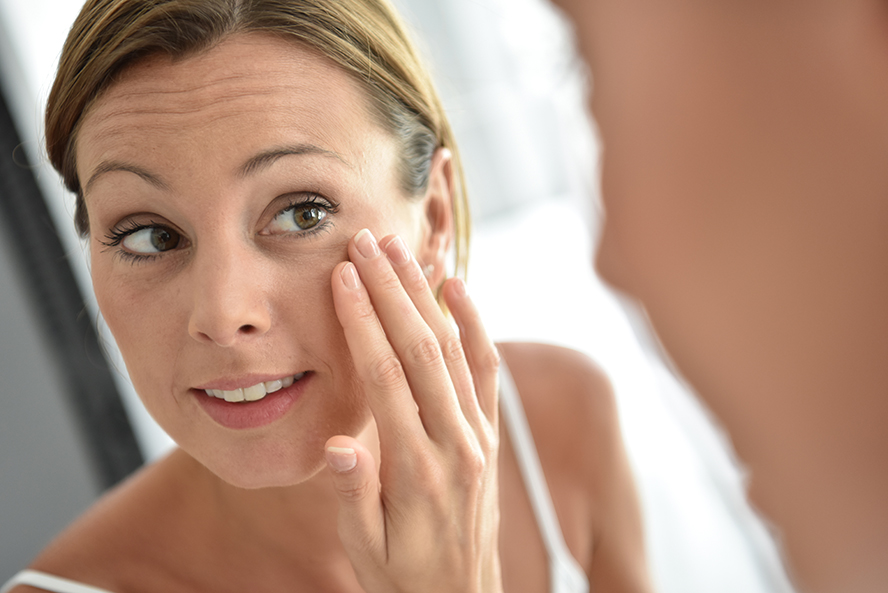


Anti-aging refers to a range of treatment and lifestyle strategies aimed at delaying or alleviating the signs of aging. It is one of the most well-known aspects for the prevention of wrinkles and loss of elasticity in the skin, but the concept of anti-aging is not limited to aesthetics. Biologically, it also includes slowing down aging and maintaining health and vitality at the cellular level. This process is about reducing the effects of free radicals, promoting cell regeneration and strengthening the body's natural healing mechanisms. Quality nutrition, regular exercise and proper skin care are also important elements. Medical treatments are supported by methods such as dermal fillers, botox and laser. Anti-aging is becoming more comprehensive every day with the development of scientific research and technology.
What is Anti-Aging?
During the aging process, cells lose their regeneration capacity and their functions slow down. Factors such as DNA damage at the cellular level, harmful effects of free radicals and inflammation contribute to aging. Wrinkles, loss of elasticity and pigmentation changes can be observed on the skin, while internal organs may experience functional impairments. The immune system weakens, muscle mass decreases and overall metabolism slows down. Anti-aging treatments are an approach that aims to slow down the aging process or reduce its symptoms. Anti-aging methods offer various treatments, lifestyle changes and pharmacological interventions to slow down this process. Skin care, healthy eating, regular exercise and scientific innovations aim to make the aging process healthier.
What are the Types of Anti-Aging Treatments?
Anti-aging treatments include various methods to alleviate the signs of aging and slow down biological aging. The types of anti-aging treatments are determined according to individual factors, taking into account skin type, severity of signs of aging, general health status and the individual's goals. People with oily, dry or sensitive skin may require different treatment methods, while more intensive treatment options may be applied for wrinkles and sagging skin that become more pronounced with age. At the same time, health status may limit some types of treatment.
Botox and Dermal Fillers
Botox and dermal fillers are two popular treatments to reduce the signs of aging. Botox is a widely preferred application to temporarily reduce the appearance of fine wrinkles, especially on the forehead, between the eyebrows and around the eyes. This substance, derived from botulinum toxin, softens wrinkles by restricting the movement of the muscles in the area where it is applied. Dermal fillers, on the other hand, eliminate volume loss and fill deep wrinkles with substances injected under the skin. They are generally used in areas such as lips, cheeks and under the eyes. Hyaluronic acid-based fillers are the most commonly preferred type because they help restore the skin's natural fullness and moisture. Since both methods do not require surgical intervention, they can be applied quickly and offer minimal recovery time.
Laser Treatments
Laser treatments are an effective method used to alleviate the signs of aging and improve skin quality. Laser treatment works by sending light energy under the skin. Typically, laser treatments are used to reduce the appearance of wrinkles, fine lines, sun spots and acne scars. It also evens out the skin tone and smooths its texture. As it is a non-invasive method, it is seen as an alternative to surgical procedures and the recovery time is minimal. Laser treatment is planned individually and various laser types can be used for different skin types. CO2 lasers, fractional lasers and IPL (intense pulsed light) laser are the most commonly used types. Laser treatments can also be applied for skin tightening and skin rejuvenation.
Chemical Peeling
Chemical peeling supports skin renewal by peeling the top layer of the skin in a controlled manner in anti-aging treatments. After the application, the skin gains a fresher appearance. This provides an effective method to alleviate the effects of aging. The chemical solutions used during peeling peel off the top layer of the skin and allow the skin to emerge from underneath fresher, smoother and more vibrant. This process helps to remove fine lines, wrinkles, sun spots and uneven skin tone. It also stimulates collagen production, increasing skin elasticity and providing a more youthful appearance. Light, medium and deep peeling options are determined according to the skin type and signs of aging.
Antioxidant Treatments
Antioxidant therapies play an important role in anti-aging to slow down aging. Antioxidants delay cellular aging by reducing the damage caused by free radicals to skin and body cells. Free radicals are formed by environmental factors and metabolic processes and lead to signs of aging such as wrinkles, loss of elasticity and blemishes on the skin. Antioxidants such as vitamin C, vitamin E, coenzyme Q10 and glutathione are commonly used in skin care products.
Hormone Therapies
Hormone therapies for anti-aging aim to alleviate the signs of aging by balancing hormone levels that decrease with age. This is done by replacing hormones such as estrogen, progesterone and testosterone. Declining hormone levels can lead to signs of aging such as wrinkled skin, loss of energy, muscle weakening and slowed metabolism. Hormone replacement therapy aims to reduce these effects, but it should be individualized and administered under the supervision of a doctor. Like any surgical procedure or medical treatment, there is a risk of side effects.
Natural Methods and Lifestyle Changes
In the anti-aging process, natural methods and lifestyle changes have a strong influence, and these methods delay aging in conjunction with each other. This in turn promotes cell regeneration and maintains skin health. To enhance this effect, regular exercise also boosts circulation and provides oxygen to skin cells, helping the skin to maintain its elasticity. Sleep is a critical process in which the body repairs itself. A body that does not get enough sleep slows down this natural repair mechanism and accelerates the signs of aging.
All these methods, when applied together, improve the overall health of the skin. Techniques such as stress management and meditation also help to balance the body's hormone levels. Hormonal balance directly affects skin health because a stressful life leads to increased cortisol levels, which accelerates skin aging. In addition, sun protection is the most critical step in the skin aging process. UV rays lead to collagen loss and deepen wrinkles. Natural methods and lifestyle changes support the skin's repair capacity while minimizing the effects of aging by improving overall quality of life.
What are the Benefits of Anti-Aging?
The benefits of anti-aging treatments are related to alleviating the signs of aging and improving overall quality of life. Anti-aging treatments help to lighten the signs of aging such as wrinkles, fine lines, blemishes and loss of elasticity, making the skin look more dynamic and healthy. It also evens out skin tone and provides a smoother skin texture. Anti-aging treatments increase collagen production, restoring skin elasticity and supporting the natural cell renewal process. This protects long-term skin health.
Anti-aging treatment options may vary depending on the skin structure, health status and signs of aging. Therefore, it is important to consult a healthcare professional to determine the most suitable treatment method for you and to prioritize your health. An expert dermatologist can analyze your skin type, recommend the right treatment plan and minimize possible side effects. A professional assessment is essential for reliable and effective treatment that best suits your individual needs.